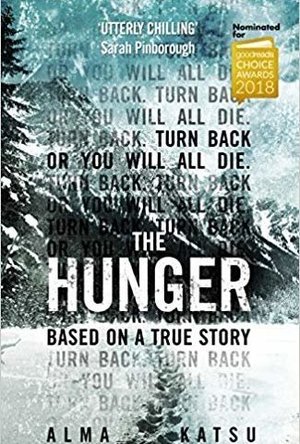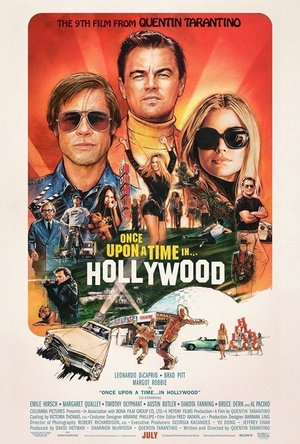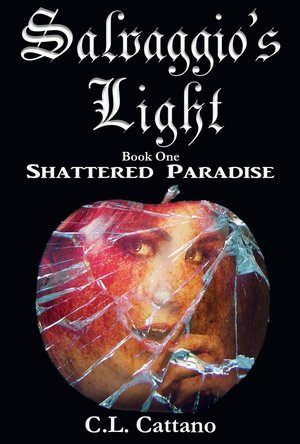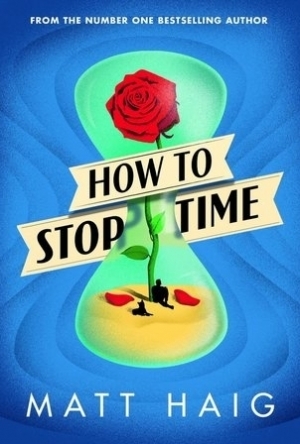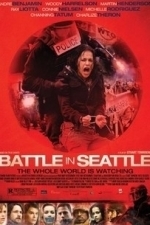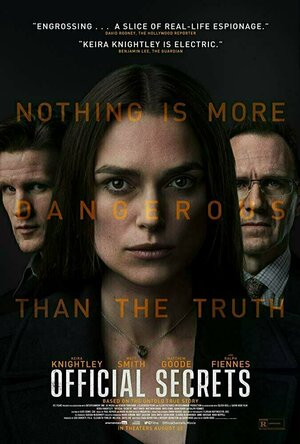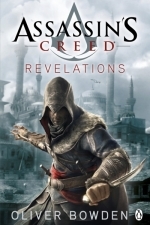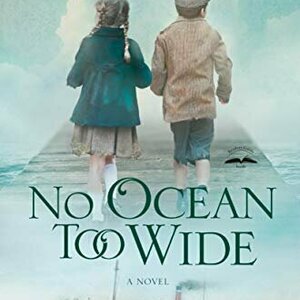Search
Sassy Brit (97 KP) rated The Hunger in Books
Jun 5, 2019
The Hunger by Alma Katsu is based on the true events of Donner Party tragedy where a party of pioneers travelling west came to a crossroads and the leader, George Donner had to make a decision to take the well documented but longer route across the desert towards California, or to take the untested path, which was rumoured to be far shorter. His decision could mean life or death to the families travelling with him.
It’s kind of funny that the first time I heard of the Donner Party was on one of my favourite horror films, The Shining, written by Stephen King and directed Stanley Kubrick. Jack Nicholson acting as the character Jack Torrance, mentions the Donner Party and it’s how the name came about for the Donner Pass on Interstate 80 in Northern California. Since hearing about this in the film I was eager to look it up, so when I read the synopsis of The Hunger, I had to read it!
This book is broken up into monthly sections starting from June 1846 to April 1847. The latter of which is actually the prologue and supplies the details of the findings of one man, Lewis Keseberg, the last known survivor of the Donna Party event. This makes for an intriguing hook for the rest of the book and I couldn’t wait to see what had happened. Why had no one else survived?
The Hunger is an atmospheric re-imagining of the Donner Party disaster, which blends true horror with the supernatural and is ideal for historical, paranormal and even dark horror fans! It’s full of drama, mystery, intrigue and is downright spooky. The tension Alma Katsu adds, it amazing! I really sympathised for the families, those that had no idea what was going on, and even those that were forced to survive the only way they knew how. I don’t think I’ve ever read a story about Westward migration that is so chilling! This is a study of human endurance tested to its very limits – and beyond. How far would YOU go in order to survive?
It’s kind of funny that the first time I heard of the Donner Party was on one of my favourite horror films, The Shining, written by Stephen King and directed Stanley Kubrick. Jack Nicholson acting as the character Jack Torrance, mentions the Donner Party and it’s how the name came about for the Donner Pass on Interstate 80 in Northern California. Since hearing about this in the film I was eager to look it up, so when I read the synopsis of The Hunger, I had to read it!
This book is broken up into monthly sections starting from June 1846 to April 1847. The latter of which is actually the prologue and supplies the details of the findings of one man, Lewis Keseberg, the last known survivor of the Donna Party event. This makes for an intriguing hook for the rest of the book and I couldn’t wait to see what had happened. Why had no one else survived?
The Hunger is an atmospheric re-imagining of the Donner Party disaster, which blends true horror with the supernatural and is ideal for historical, paranormal and even dark horror fans! It’s full of drama, mystery, intrigue and is downright spooky. The tension Alma Katsu adds, it amazing! I really sympathised for the families, those that had no idea what was going on, and even those that were forced to survive the only way they knew how. I don’t think I’ve ever read a story about Westward migration that is so chilling! This is a study of human endurance tested to its very limits – and beyond. How far would YOU go in order to survive?
Neon's Nerd Nexus (360 KP) rated Once Upon a Time in Hollywood (2019) in Movies
Aug 15, 2019
As real as a donut
once upon a timeinhollywood is slow paced, tight methodical, uplifting & intricately woven look into the life of a hollywood star in the late 60s. I have to say im not overly a big Tarantino fan (with Inglorious bastards & the hateful eight being my favourites of his) so I wasnt really that excited about seeing this but once I stopped being on edge waiting for something bad to happen & finally sat back letting the film pull me in I knew this wasnt the usual Tarantino movie & I found that strangely compelling. While slow 90% of the run time the film never drags or ever stops being interesting & fascinating. Characters just drip cool are all likeable well fleshed out & distinguishable with every performance absolutely killing it even people that arnt in it much. It just all feels very human, relatable, down to earth & real. Sets are crafted with such perfection & filled with so much painstaking detail that you would swear the film was actually shot in the 60s creating an atmosphere & believability like no other. Accompany that with a smooth soundtrack you have a movie that just pops with style constantly. While everyone does a fantastic job its brad pitt that owns the film, his character is so deep, inspirational & the true hero of the film. Overall I saw this film as a more chill ed out & about how every day life for us all most of the time is way more exciting, thrilling, full of drama & strange events day to day making our lives just as exciting & as watchable as going to the movies & if we all just stopped worrying/stressing for just a second about technology, love, being successful etc life would fall into place, be stress free, we would be healthier & happier. Masterfully filmed, inteligent, mature & well executed this is not only a true love letter to the art of film making but a tribute to movies & how inspiring they can be in general. So sit back enter the decade & relax it may all seem very anti violence at first but the violence does come with time & when it finally hits its shocking & nasty but it feels earned & perfectly timed.

B50 — Face Changer Camera
Photo & Video and Social Networking
App
Wanna have fun? Or shock your Mum? The answer to ‘How?’ is Banuba. Banuba is the go-to selfie...
Hazel (1853 KP) rated How to Stop Time in Books
Jun 30, 2017
Favourite book of 2017 so far
This eBook was provided by the publisher via NetGalley in exchange for an honest review
All the world’s a stage/And all the men and women merely players/They have their exits and their entrances/And one man in his time plays many parts …
How to Stop Time is British author Matt Haig’s latest novel, and a very interesting one it is, too. In the present day, Tom Hazard is a 40-something-looking man who has landed himself with the position of history teacher at a comprehensive school in Tower Hamlets. Despite not having any formal training, Tom is the perfect candidate for the position because, despite his looks, he is 439 years old. But, that is a secret that no one must ever discover.
The book jumps back and forth between the current time period and flashbacks to various events during Tom’s extensive past. Born in 1581, Tom has experienced a great part of British history and major events around the world. Constantly changing his name and identification, he moved around the world, switching locations whenever people began to get suspicious of his never-aging body.
After a couple of centuries, Tom met a man with the same condition as himself, who revealed that there were many people in the same predicament. Promising to be able to help keep him safe, the stranger coerces Tom into a union called the Albatross Society. There are many rules and conditions to follow, however, the most important advice is to never fall in love. Unfortunately, Tom has already done this.
In London 1623, Tom met the love of his life, Rose, who he eventually married and with whom he had a daughter. Although Tom does age, it is at the rate of one year every 15; therefore he eventually had to leave his family in order to keep them safe. However, his daughter Marion has inherited his condition and Tom spends his subsequent years trying to find her. With promises to help him on his quest, Tom reluctantly joins the Albatross Society, despite their questionable ways.
All Tom wants is to be able to lead a normal life, yet the narrative reveals how impossible this has been, both in the past and now in the present. From Elizabethan England to Elizabeth II’s reign, Tom lives through several monarchs, wars, colloquial changes, industrialisation, sanitisation of comestibles, and the introduction of digital technology. Without the added pressure of keeping his true identity disguised, it is very interesting to experience historical events through the eyes of the protagonist.
The ending, unfortunately, does not quite satisfy the growing excitement and interest of the rest of the novel. Important things happen too quickly, making it confusing to understand the main storyline. The majority of the story appears to only be setting the scene for the final couple of chapters, but as this is so fascinating, there cannot be too much complaint.
Presuming that Haig has done his research and that the historical periods are factually correct, How to Stop Time is as educational as it is entertaining. History lovers will enjoy reading about famous people such as Shakespeare and Charlie Chaplin, as well as getting an insight into the daily lives of past societies. Most importantly, Tom is a captivating character, who, despite having lived for four centuries, is still as socially awkward as the best of us.
How to Stop Time contains a fantastic concept about the progression of time and aging, but its most poignant point is the emphasis on finding and being you. Change is an inevitable certainty, as witnessed by Tom whose current world looks nothing like his memories. Although people must adapt to the on-going changes, living how you want is more important than adjusting to fit in with everyone else. In essence, do not be afraid to let the world see your true self.
All the world’s a stage/And all the men and women merely players/They have their exits and their entrances/And one man in his time plays many parts …
How to Stop Time is British author Matt Haig’s latest novel, and a very interesting one it is, too. In the present day, Tom Hazard is a 40-something-looking man who has landed himself with the position of history teacher at a comprehensive school in Tower Hamlets. Despite not having any formal training, Tom is the perfect candidate for the position because, despite his looks, he is 439 years old. But, that is a secret that no one must ever discover.
The book jumps back and forth between the current time period and flashbacks to various events during Tom’s extensive past. Born in 1581, Tom has experienced a great part of British history and major events around the world. Constantly changing his name and identification, he moved around the world, switching locations whenever people began to get suspicious of his never-aging body.
After a couple of centuries, Tom met a man with the same condition as himself, who revealed that there were many people in the same predicament. Promising to be able to help keep him safe, the stranger coerces Tom into a union called the Albatross Society. There are many rules and conditions to follow, however, the most important advice is to never fall in love. Unfortunately, Tom has already done this.
In London 1623, Tom met the love of his life, Rose, who he eventually married and with whom he had a daughter. Although Tom does age, it is at the rate of one year every 15; therefore he eventually had to leave his family in order to keep them safe. However, his daughter Marion has inherited his condition and Tom spends his subsequent years trying to find her. With promises to help him on his quest, Tom reluctantly joins the Albatross Society, despite their questionable ways.
All Tom wants is to be able to lead a normal life, yet the narrative reveals how impossible this has been, both in the past and now in the present. From Elizabethan England to Elizabeth II’s reign, Tom lives through several monarchs, wars, colloquial changes, industrialisation, sanitisation of comestibles, and the introduction of digital technology. Without the added pressure of keeping his true identity disguised, it is very interesting to experience historical events through the eyes of the protagonist.
The ending, unfortunately, does not quite satisfy the growing excitement and interest of the rest of the novel. Important things happen too quickly, making it confusing to understand the main storyline. The majority of the story appears to only be setting the scene for the final couple of chapters, but as this is so fascinating, there cannot be too much complaint.
Presuming that Haig has done his research and that the historical periods are factually correct, How to Stop Time is as educational as it is entertaining. History lovers will enjoy reading about famous people such as Shakespeare and Charlie Chaplin, as well as getting an insight into the daily lives of past societies. Most importantly, Tom is a captivating character, who, despite having lived for four centuries, is still as socially awkward as the best of us.
How to Stop Time contains a fantastic concept about the progression of time and aging, but its most poignant point is the emphasis on finding and being you. Change is an inevitable certainty, as witnessed by Tom whose current world looks nothing like his memories. Although people must adapt to the on-going changes, living how you want is more important than adjusting to fit in with everyone else. In essence, do not be afraid to let the world see your true self.
RəX Regent (349 KP) rated Battle in Seattle (2008) in Movies
Mar 7, 2019
Lefty cold
Contains spoilers, click to show
I caught this on the TV and was intrigued by the opening credits, always being one to be interested in real events and certainly ones in a recent political context. I admit that I was unaware of these events, but as the plot played out it left me feeling somewhat cold, always waiting for the hook that never came.
This was basically a docudrama which melded the real and the reenactment together to create an at times frightening and tense view of the riots. Though this could have been any riot, over any subject, which was kind of the point. I feel that this could easily have been a film focusing on the Poll Tax riots of 1990 and have lost nothing.
I feel that this needed to be more, in every area. More Seattle Riots, and I mean in a way that singled them out as such, and not just any riot. More character drama, with barely scratched the surface at most and more political. This attacks the WTO with the lowest common denominator, playing the emotional and reactionary left wing card, rather than a fully rounded balanced argument.
I have no doubt that the World Trade Organisation is evil, as are most capital institutions, but there was little to convict them here, except the strong implications that they are against free speech.
This was a film which was fair to it's characters; The riot cop just doing his job, the peaceful protesters, the anarchists and the forlorn Mayer. But there was a lack of a strong villain, as, as I've said, the WTO wasn't sufficiently justified.
Also, its historical integrity has to be questioned. Simply put, are any of the characters portrait here real? The protesters are fictional, as I understand, but the Mayer? The reporter? It's not clear and based on their actions within the film, I would really like to know.
*** SPOILER *** But finally, the most disturbing and probably the best, most compelling part of this film to me would be the what happens to Charlize Theron's character, a pregnant woman and wife of Woody Harleson's riot cop. As she is trying in vain to make her way home amidst the chaos of rioters clashing with police and in the confusion is treated as a rioter and is hit in the stomach with a baton. The result I'll leave in your imagination...
This was best moment in the film were the true horror of these clashes become prevalent as the moral lines are crossed and order breaks down.
************** In summation, this was worth a watch but will offer little in the way of clarification as to the motives of the events of that November, but maybe there are no more. Maybe it was a riot which stemmed from a protest against the capitalist machine. If you have strong lefty views then this is the film for you, if not, have a look but I doubt that you'll be blown away.
This was basically a docudrama which melded the real and the reenactment together to create an at times frightening and tense view of the riots. Though this could have been any riot, over any subject, which was kind of the point. I feel that this could easily have been a film focusing on the Poll Tax riots of 1990 and have lost nothing.
I feel that this needed to be more, in every area. More Seattle Riots, and I mean in a way that singled them out as such, and not just any riot. More character drama, with barely scratched the surface at most and more political. This attacks the WTO with the lowest common denominator, playing the emotional and reactionary left wing card, rather than a fully rounded balanced argument.
I have no doubt that the World Trade Organisation is evil, as are most capital institutions, but there was little to convict them here, except the strong implications that they are against free speech.
This was a film which was fair to it's characters; The riot cop just doing his job, the peaceful protesters, the anarchists and the forlorn Mayer. But there was a lack of a strong villain, as, as I've said, the WTO wasn't sufficiently justified.
Also, its historical integrity has to be questioned. Simply put, are any of the characters portrait here real? The protesters are fictional, as I understand, but the Mayer? The reporter? It's not clear and based on their actions within the film, I would really like to know.
*** SPOILER *** But finally, the most disturbing and probably the best, most compelling part of this film to me would be the what happens to Charlize Theron's character, a pregnant woman and wife of Woody Harleson's riot cop. As she is trying in vain to make her way home amidst the chaos of rioters clashing with police and in the confusion is treated as a rioter and is hit in the stomach with a baton. The result I'll leave in your imagination...
This was best moment in the film were the true horror of these clashes become prevalent as the moral lines are crossed and order breaks down.
************** In summation, this was worth a watch but will offer little in the way of clarification as to the motives of the events of that November, but maybe there are no more. Maybe it was a riot which stemmed from a protest against the capitalist machine. If you have strong lefty views then this is the film for you, if not, have a look but I doubt that you'll be blown away.
Deborah (162 KP) rated Bosworth Field and the Wars of the Roses in Books
Dec 21, 2018
For starters, the book is entitled Bosworth Field & the Wars of the Roses. Discussion of Bosworth is pretty much restricted to one short chapter and about the first third of the book is taken up with an over-detailed account of the events leading up to the Wars of the Roses; if Rowse is concerned about 'Wars of the Roses' being a misnomer, perhaps he should look to his own title! Yes, the events from the disposition of Richard II in 1399 and the usurpation of his throne by Bolingbroke do have an impact on later events, but a third of the book? Do we really need to know the ins and outs of Sir John Oldcastle's Lollard leanings - I fail to see how this is relevant.
Rowse's chapter on Shakespeare must be at least as long, if not longer, than his chapter on Bosworth. The fact that he obviously sincerely believes that one can gain a credible understanding of history from Shakespeare cycle of plays was almost enough to make me drop the book in astonishment! How can one take him seriously?!
He is also ready to give every credit to the supposed work of More. Even here he falls down by claiming that the bodies of the 'princes in the tower' were discovered in the exact place More said! If you read this work you'll find that the opposite is true - they are in the exact place More said they were NOT! The fact that there isn't a shred of evidence that anyone killed the two princes is evidently a small matter to Rowse. He mentions the great turncoat, Sir William Stanley (at this point step-uncle to Henry Tudor) being executed s a result of the Perkin Warbeck debacle, but fails to mention that Sir William is imputed to have said that if Warbeck really was Richard of York, he would not fight against him. Of course he doesn't mention this - he has to keep reminding us that EVERYONE believed Richard III guilty! Really, a credible historian should not pick and choose their facts - something Alison Weir is also very fond of doing.
Another point is that he is quite happy to accept that Katherine of Valois really did marry Owen Tudor, but cannot countenance the much more credible suggestion that Edward IV was married to Eleanor Butler (nee Talbot), who is not even mentioned. He harps on about the morality and piety of the Lancastrians (despite the Beauforts being conceived in double adultery - further hypocrisy) but when Richard III founds a chantry or offers some concession to a religious house that Rowse concludes it much be down to his uneasy concience.
So, overall, not a book I can recommend in the least. He may try to convince us that his unbending traditionalist view is 'sensible' and 'common sense' but anyone with a little knowledge of the subject will see it as laughably absurd and highly prejudiced.
Rowse's chapter on Shakespeare must be at least as long, if not longer, than his chapter on Bosworth. The fact that he obviously sincerely believes that one can gain a credible understanding of history from Shakespeare cycle of plays was almost enough to make me drop the book in astonishment! How can one take him seriously?!
He is also ready to give every credit to the supposed work of More. Even here he falls down by claiming that the bodies of the 'princes in the tower' were discovered in the exact place More said! If you read this work you'll find that the opposite is true - they are in the exact place More said they were NOT! The fact that there isn't a shred of evidence that anyone killed the two princes is evidently a small matter to Rowse. He mentions the great turncoat, Sir William Stanley (at this point step-uncle to Henry Tudor) being executed s a result of the Perkin Warbeck debacle, but fails to mention that Sir William is imputed to have said that if Warbeck really was Richard of York, he would not fight against him. Of course he doesn't mention this - he has to keep reminding us that EVERYONE believed Richard III guilty! Really, a credible historian should not pick and choose their facts - something Alison Weir is also very fond of doing.
Another point is that he is quite happy to accept that Katherine of Valois really did marry Owen Tudor, but cannot countenance the much more credible suggestion that Edward IV was married to Eleanor Butler (nee Talbot), who is not even mentioned. He harps on about the morality and piety of the Lancastrians (despite the Beauforts being conceived in double adultery - further hypocrisy) but when Richard III founds a chantry or offers some concession to a religious house that Rowse concludes it much be down to his uneasy concience.
So, overall, not a book I can recommend in the least. He may try to convince us that his unbending traditionalist view is 'sensible' and 'common sense' but anyone with a little knowledge of the subject will see it as laughably absurd and highly prejudiced.
James P. Sumner (65 KP) rated Official Secrets (2019) in Movies
Oct 16, 2019
Should this tense, dramatic thriller remain a Secret?
I was lucky enough to be invited to an advanced screening of this film, ahead of it's general release.
"Official Secrets (2019)" is a tense and clever thriller based on real events that occurred during the beginning of the Iraq War in 2003. Keira Knightley plays Katherine Gun, a British spy-turned-whistleblower who worked for GCHQ at the time. She leaked confidential information to the press, exposing illegal activities at the highest levels of government intended to falsely justify the invasion of Iraq. Backed by a high-calibre support cast, which includes Matt Smith and Ralph Fiennes, this film serves to show you the true story of what happened during this shadowy and questionable chapter in our history.
The film uses actual news footage from the time to great effect, making you feel as if you're watching a biographical documentary on the History Channel. Knightley is captivating as the Robin Hood-esque lead, delivering a truly believable and heartfelt performance throughout. It wasn't until the credits began to roll and they showed you footage of the real Katherine Gun from news reels at the time that you realise just how good Knightley's performance really was. From the way she dressed to the tone in which she spoke and the small mannerisms of her personality, it was a very, very good portrayal.
As with most films like this, I imagine certain events and aspects of the story were dramatised or exaggerated for the purposes of cinema, but at no point did it ever feel like it. Any changes to real events were subtle enough that you couldn't spot them without detailed knowledge of what really happened at the time - something, it turns out, very few people actually had.
Matt Smith is both charming and uncompromising as the stubborn reporter who champions Gun's crusade for the truth, giving her support and a platform to get her message out to the world. Similarly, Ralph Fiennes looks right at home as the lawyer who defends her in the public eye.
I admit that certain aspects and legalities within the plot felt, at times, a little far-fetched, but honestly, the film did such a good job of telling this story, I'm inclined to think that's still how things actually happened.
Spoilers aren't as much of an issue for films like this, as you already know the outcome. But this film isn't about the destination, it's about the journey. It shines a spotlight on the down-and-dirty world of global politics, as well as how difficult it can sometimes be to choose to do the right thing.
The film moves along at a slow yet perfect pace. It doesn't look or feel like a Hollywood movie, which I think is a very good thing. Instead, it feels like a BBC drama, similar to Line of Duty or Luther or Spooks, and that's exactly the kind of approach this film needed to work.
I went into this admittedly understanding very little of what went on back in 2003. I was much younger and wasn't interested in geopolitics, or even the news in general. But seeing this film piqued my interest, and after a few hours of Googling the events depicted in the film, I'm even more in awe of just how well made this was. Kudos to everyone involved.
My only criticism, if I had to give one, would be the number of times people had to say "Official Secrets Act"... I get that's what the film is about, but it seemed like every character had a quota for the number of times they had to mention it! But that's just nit-picking for nit-picking's sake. This truly is a cracking film. One of the gems of the year that's not to be missed!
"Official Secrets (2019)" is a tense and clever thriller based on real events that occurred during the beginning of the Iraq War in 2003. Keira Knightley plays Katherine Gun, a British spy-turned-whistleblower who worked for GCHQ at the time. She leaked confidential information to the press, exposing illegal activities at the highest levels of government intended to falsely justify the invasion of Iraq. Backed by a high-calibre support cast, which includes Matt Smith and Ralph Fiennes, this film serves to show you the true story of what happened during this shadowy and questionable chapter in our history.
The film uses actual news footage from the time to great effect, making you feel as if you're watching a biographical documentary on the History Channel. Knightley is captivating as the Robin Hood-esque lead, delivering a truly believable and heartfelt performance throughout. It wasn't until the credits began to roll and they showed you footage of the real Katherine Gun from news reels at the time that you realise just how good Knightley's performance really was. From the way she dressed to the tone in which she spoke and the small mannerisms of her personality, it was a very, very good portrayal.
As with most films like this, I imagine certain events and aspects of the story were dramatised or exaggerated for the purposes of cinema, but at no point did it ever feel like it. Any changes to real events were subtle enough that you couldn't spot them without detailed knowledge of what really happened at the time - something, it turns out, very few people actually had.
Matt Smith is both charming and uncompromising as the stubborn reporter who champions Gun's crusade for the truth, giving her support and a platform to get her message out to the world. Similarly, Ralph Fiennes looks right at home as the lawyer who defends her in the public eye.
I admit that certain aspects and legalities within the plot felt, at times, a little far-fetched, but honestly, the film did such a good job of telling this story, I'm inclined to think that's still how things actually happened.
Spoilers aren't as much of an issue for films like this, as you already know the outcome. But this film isn't about the destination, it's about the journey. It shines a spotlight on the down-and-dirty world of global politics, as well as how difficult it can sometimes be to choose to do the right thing.
The film moves along at a slow yet perfect pace. It doesn't look or feel like a Hollywood movie, which I think is a very good thing. Instead, it feels like a BBC drama, similar to Line of Duty or Luther or Spooks, and that's exactly the kind of approach this film needed to work.
I went into this admittedly understanding very little of what went on back in 2003. I was much younger and wasn't interested in geopolitics, or even the news in general. But seeing this film piqued my interest, and after a few hours of Googling the events depicted in the film, I'm even more in awe of just how well made this was. Kudos to everyone involved.
My only criticism, if I had to give one, would be the number of times people had to say "Official Secrets Act"... I get that's what the film is about, but it seemed like every character had a quota for the number of times they had to mention it! But that's just nit-picking for nit-picking's sake. This truly is a cracking film. One of the gems of the year that's not to be missed!
Connor Sheffield (293 KP) rated Assassin's Creed: Revelations in Books
May 15, 2017
No Den Defence to play (2 more)
A brilliant send off to Ezio
Combining Revelations with the Embers short film
The final journey of Ezio Auditore
Ezio Auditore is now old and frail in this final chapter of his life. Though he can still move and fight like an assassin, better than any civilized man, he is old and growing frail with each passing day.
Following the story of the third and final game in the Ezio story line, as seen in the Ezio Collection video game, and combining it with his final moments told in the 'Assassin's Creed: Embers' short film with more detail, as books do best.
The Revelations Novels offers us insight into the mind of an aging Ezio, as he journeys to Constantinople where the Templar Order are threatening to destabilize the Ottoman Empire. Ezio meets new friends even after all these years, such as Yusuf. Ezio also discovers more about his ancestor Altaïr and the mystery behind what lies in Altaïr's tomb beneath Masyaf.
His journey began as a pilgrimage, but quickly turns into a battle with the Templar's once more. With help from his new friends, and allies, Ezio must help stop the rising Templar army in order to find the missing keys to the Masyaf tomb. Through letters to his sister Claudia, and through the same format as the previous two Ezio novels, we read about Ezio as though we were watching him in the animus, but unable to control what happens, unlike the video game.
As mentioned in my previous review, I'm not sure how many times I can praise Bowden for his work on this series. All I can say is that he does not fail to entertain and reveal a new experience to the world of Assassin's Creed. If you have read my previous reviews then you know how much I praise this man for his work on the series of Novels he has written for the fans. Each one delivers a new thrilling experience and each one stays true to the events of the video game as much as possible. Of course each person who plays the video game plays differently. These novels give more of a sense of what the Assassin's themselves would have truly done in the events that unfold.
Following the story of the third and final game in the Ezio story line, as seen in the Ezio Collection video game, and combining it with his final moments told in the 'Assassin's Creed: Embers' short film with more detail, as books do best.
The Revelations Novels offers us insight into the mind of an aging Ezio, as he journeys to Constantinople where the Templar Order are threatening to destabilize the Ottoman Empire. Ezio meets new friends even after all these years, such as Yusuf. Ezio also discovers more about his ancestor Altaïr and the mystery behind what lies in Altaïr's tomb beneath Masyaf.
His journey began as a pilgrimage, but quickly turns into a battle with the Templar's once more. With help from his new friends, and allies, Ezio must help stop the rising Templar army in order to find the missing keys to the Masyaf tomb. Through letters to his sister Claudia, and through the same format as the previous two Ezio novels, we read about Ezio as though we were watching him in the animus, but unable to control what happens, unlike the video game.
As mentioned in my previous review, I'm not sure how many times I can praise Bowden for his work on this series. All I can say is that he does not fail to entertain and reveal a new experience to the world of Assassin's Creed. If you have read my previous reviews then you know how much I praise this man for his work on the series of Novels he has written for the fans. Each one delivers a new thrilling experience and each one stays true to the events of the video game as much as possible. Of course each person who plays the video game plays differently. These novels give more of a sense of what the Assassin's themselves would have truly done in the events that unfold.
MaryAnn (14 KP) rated No Ocean Too Wide (McAlister Family #1) in Books
Nov 4, 2019
Between the years of 1869 to 1939 more than 100,000 poor British children were sent across the ocean to Canada with the promise of a better life. Those who took them in to work as farm laborers or household servants were told they were orphansbut was that the truth?
After the tragic loss of their father, the McAlister family is living at the edge of the poorhouse in London in 1908, leaving their mother to scrape by for her three younger children, while oldest daughter, Laura, works on a large estate more than an hour away. When Edna McAlister falls gravely ill and is hospitalized, twins Katie and Garth and eight-year-old Grace are forced into an orphans home before Laura is notified about her familys unfortunate turn of events in London. With hundreds of British children sent on ships to Canada, whether truly orphans or not, Laura knows she must act quickly. But finding her siblings and taking care of her family may cost her everything.
Andrew Fraser, a wealthy young British lawyer and heir to the estate where Laura is in service, discovers that this common practice of finding new homes for penniless children might not be all that it seems. Together Laura and Andrew form an unlikely partnership. Will they arrive in time? Will their friendship blossom into something more?
Inspired by true events, this moving novel follows Laura as she seeks to reunite her family and her siblings who, in their darkest hours, must cling to the words from Isaiah: Fear thou not; for I am with thee: be not dismayed; for I am thy God
My Thoughts: This was an interesting compelling book to read. It is honestly hard to read about children being taken away from their families by those who feel they are making the children's lives better when in fact the children are treated like slaves. This is the hard part of the book to read, but the fact is, is that this was actually happening during this time period. The author has done a tremendous job of bringing the truth out in this novel. Like every story that has hardship in it, this one does have a little hope. I certainly look forward to reading the second book in this series.
After the tragic loss of their father, the McAlister family is living at the edge of the poorhouse in London in 1908, leaving their mother to scrape by for her three younger children, while oldest daughter, Laura, works on a large estate more than an hour away. When Edna McAlister falls gravely ill and is hospitalized, twins Katie and Garth and eight-year-old Grace are forced into an orphans home before Laura is notified about her familys unfortunate turn of events in London. With hundreds of British children sent on ships to Canada, whether truly orphans or not, Laura knows she must act quickly. But finding her siblings and taking care of her family may cost her everything.
Andrew Fraser, a wealthy young British lawyer and heir to the estate where Laura is in service, discovers that this common practice of finding new homes for penniless children might not be all that it seems. Together Laura and Andrew form an unlikely partnership. Will they arrive in time? Will their friendship blossom into something more?
Inspired by true events, this moving novel follows Laura as she seeks to reunite her family and her siblings who, in their darkest hours, must cling to the words from Isaiah: Fear thou not; for I am with thee: be not dismayed; for I am thy God
My Thoughts: This was an interesting compelling book to read. It is honestly hard to read about children being taken away from their families by those who feel they are making the children's lives better when in fact the children are treated like slaves. This is the hard part of the book to read, but the fact is, is that this was actually happening during this time period. The author has done a tremendous job of bringing the truth out in this novel. Like every story that has hardship in it, this one does have a little hope. I certainly look forward to reading the second book in this series.
